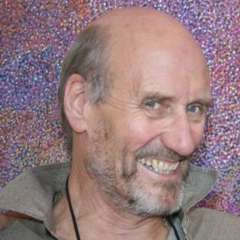Mary Finsterer has managed a musical melange that crosses effortlessly and delightfully from the Renaissance to today which makes Biographica the most musically successful of the young Sydney Chamber Opera's commissions. If only Tom Wright's book and libretto had been a match, this would have been a work worth taking to the world.
For Gerolamo Cardano, the little known mathematical and medical genius from 16th-century Milan, is here presented more for his personal failings than his scientific achievements. No mention, for instance is made of his identification of typhus, nor of Ars Magna, his book that brought algebra into Europe and solved several cubic equations – though a brave, spiralling section of Finsterer's writing pays almost hymnic tribute to the combination padlock that is all that 21st-century users might regularly recognise of Cardano's talents. So maths is not beyond the wit of music to encompass.
But the text's emphasis on Cardano's lack of empathy with his errant offspring – one a murderer, one a thief and one dead from the pox, which he seems to have made no effort to cure – is surely not the heart of the matter. And, while the opera begins and ends with Cardano using horoscopes to correctly predict the date of his own death (though one biography does suggest he perfected his science by committing suicide!), the kids all lay blame on their father for failing to use the same methodology to predict their various falls from grace.
Where the personal does intersect vitally with the public is in Gerolamo's birth. The plague is in Milan, his pregnant mother – powerfully sung by soprano Jane Sheldon with the help of early Baroque arioso – decamps for Pavia, only to curse her pestilential embryo and consider abortion as news comes that the pestilence has taken the lives of his elder siblings. Not surprisingly, Mitchell Butel's black-clad, glowering Gerolamo emerges as a saturnine figure – speaking rather than singing his ambition, his claims to genius, his lack of familial care and his Renaissance belief that God moves through the stars, the only matter that moves him to something close to poetry.
Butel could certainly have given us his mathematics too – proving it in the whipcrack scene where he diagnoses (in exchange for 2000 gold crowns) that the Archbishop of St Andrews's asthma would be cured by disposing of the bed-mites in his mattress rather than yet another dose of bleeding. Finsterer's matching music for a string quintet, harp, woodwind, percussion and piano was perfectly attuned to Butel's beat, swinging around to Arvo Pärtite minimalism for the bishop's instant recovery.
Distant gongs are added effectively by the five singers at the beginning and end, and in the surprisingly moving eulogy for his just-murdered, faithless wife sung by baritone Simon Lobelson to a scraping three-note harmony accompaniment, sul ponticello. The language here and occasionally elsewhere is Latin.
Finsterer's ability to match music and mood is exemplary and director Janice Miller's movement of her cast around the large space and the dynamic Ensemble Offspring band under Jack Symonds' baton, placed onstage as part of the action, was always assisted by Matt Cox's lighting.
Such a pity, then that the dramaturgy failed to give us the full Gerolamo. The man's many conflicts with authority – five times denied recognition by the Milan College of Physicians, of which he eventually became Rector – came down to Butel's increasing frustration with a panel that just couldn't understand his advances in science, and the enraged cry, “I am Cardano”. How much subtler to have set to music this passage from his autobiography: “This I recognise as unique and outstanding amongst my faults - the habit, which I persist in, of preferring to say above all things what I know to be displeasing to the ears of my hearers. I am aware of this, yet I keep it up wilfully, in no way ignorant of how many enemies it makes for me.”


